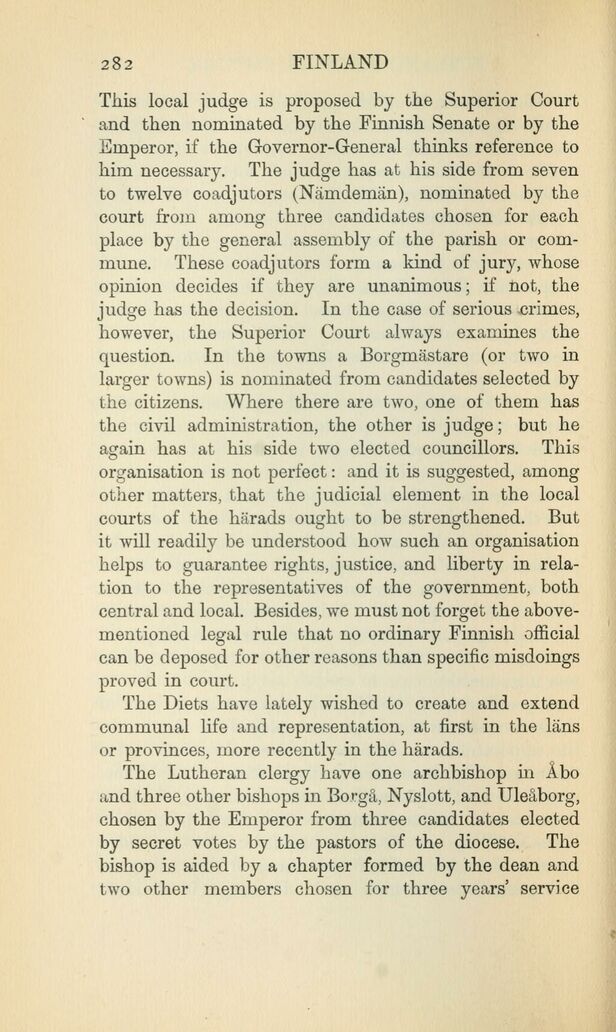
Full resolution (JPEG) - On this page / på denna sida - XI. The Government of Finland and its Future

<< prev. page << föreg. sida << >> nästa sida >> next page >>
Below is the raw OCR text
from the above scanned image.
Do you see an error? Proofread the page now!
Här nedan syns maskintolkade texten från faksimilbilden ovan.
Ser du något fel? Korrekturläs sidan nu!
This page has been proofread at least once.
(diff)
(history)
Denna sida har korrekturlästs minst en gång.
(skillnad)
(historik)
This local judge is proposed by the Superior Court
and then nominated by the Finnish Senate or by the
Emperor, if the Governor-General thinks reference to
him necessary. The judge has at his side from seven
to twelve coadjutors (Nämdemän), nominated by the
court from among three candidates chosen for each
place by the general assembly of the parish or
commune. These coadjutors form a kind of jury, whose
opinion decides if they are unanimous; if not, the
judge has the decision. In the case of serious crimes,
however, the Superior Court always examines the
question. In the towns a Borgmästare (or two in
larger towns) is nominated from candidates selected by
the citizens. Where there are two, one of them has
the civil administration, the other is judge; but he
again has at his side two elected councillors. This
organisation is not perfect: and it is suggested, among
other matters, that the judicial element in the local
courts of the härads ought to be strengthened. But
it will readily be understood how such an organisation
helps to guarantee rights, justice, and liberty in
relation to the representatives of the government, both
central and local. Besides, we must not forget the
above-mentioned legal rule that no ordinary Finnish official
can be deposed for other reasons than specific misdoings
proved in court.
The Diets have lately wished to create and extend
communal life and representation, at first in the läns
or provinces, more recently in the härads.
The Lutheran clergy have one archbishop in Åbo
and three other bishops in Borgå, Nyslott, and Uleåborg,
chosen by the Emperor from three candidates elected
by secret votes by the pastors of the diocese. The
bishop is aided by a chapter formed by the dean and
two other members chosen for three years’ service
<< prev. page << föreg. sida << >> nästa sida >> next page >>